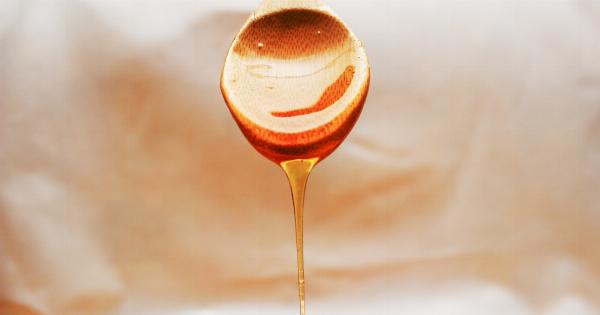Mushrooms are not only delicious additions to our meals, but they also offer numerous health benefits. One of the most remarkable benefits is their ability to fight infections.
In this article, we will explore the relationship between mushrooms and their powerful infection-fighting properties.
1. Types of Mushrooms with Antimicrobial Properties
Several types of mushrooms have been found to possess antimicrobial properties, making them effective in combating various infections. Here are a few notable examples:.
a) Reishi Mushroom (Ganoderma lucidum): Reishi mushrooms have long been used in traditional Chinese medicine for their immune-boosting and antimicrobial properties.
They contain bioactive compounds that help fight against bacteria, viruses, and other pathogens.
b) Shiitake Mushroom (Lentinula edodes): Shiitake mushrooms contain a compound called lentinan, which helps strengthen the immune system.
This compound also exhibits antiviral and antibacterial properties, making shiitake mushrooms a valuable asset in fighting infections.
c) Maitake Mushroom (Grifola frondosa): Maitake mushrooms have been shown to enhance the activity of natural killer cells, which play a crucial role in the immune response against infections.
They also possess antiviral and antibacterial properties, helping to ward off harmful pathogens.
2. Immune-Boosting Properties of Mushrooms
In addition to their direct antimicrobial effects, mushrooms are known to boost the immune system, enabling it to combat infections more effectively. They achieve this through various mechanisms:.
a) Beta-Glucans: Mushrooms, especially varieties like shiitake and maitake, are rich in beta-glucans. These compounds enhance the production of cytokines and other immune cells, thereby strengthening the immune system’s response to infections.
b) Antioxidants: Many mushrooms are rich in antioxidants, such as ergothioneine and selenium, which help protect the body against oxidative stress. By reducing oxidative damage, mushrooms support an optimal immune response to infections.
c) Vitamins and Minerals: Mushrooms contain essential vitamins and minerals, including vitamin D, vitamin B, and zinc, which are vital for a healthy immune system. These nutrients play a crucial role in preventing and fighting infections.
3. Antiviral Properties of Mushrooms
Mushrooms have been shown to possess antiviral properties, making them effective in treating viral infections. Here are a few ways in which mushrooms fight against viruses:.
a) Inhibiting Viral Replication: Some mushrooms, such as Reishi and Cordyceps, contain compounds that inhibit viral replication.
By interfering with the virus’s ability to spread within the body, mushrooms help reduce the severity and duration of viral infections.
b) Supporting the Immune Response: Mushrooms help strengthen the immune system, enabling it to mount a robust response against viral infections.
A strong immune system can recognize and eliminate viruses more efficiently, speeding up the recovery process.
c) Boosting Natural Killer Cell Activity: Natural killer cells are an essential part of the immune system’s defense against viral infections.
Mushrooms like Maitake enhance the activity of these cells, making them more effective in eliminating virus-infected cells.
4. Antibacterial Properties of Mushrooms
Mushrooms also exhibit antibacterial properties, which help combat bacterial infections. Here are a few ways mushrooms fight against bacteria:.
a) Inhibiting Bacterial Growth: Certain compounds found in mushrooms, such as lectins and polysaccharides, inhibit the growth of harmful bacteria. By preventing bacterial proliferation, mushrooms help control and eliminate bacterial infections.
b) Strengthening the Immune Response: Mushrooms support the immune system in identifying and eliminating harmful bacteria. By boosting immune cell activity, mushrooms help to clear bacterial infections more effectively.
c) Acting as Natural Antibiotics: Some mushrooms produce natural antibiotics, such as penicillin, that can inhibit the growth of bacteria.
These natural antibiotics can be a valuable addition to conventional antibiotics, especially in cases where antibiotic resistance is a concern.
5. Mushroom-based Medicinal Preparations
The remarkable infection-fighting properties of mushrooms have led to the development of various medicinal preparations. Some of the popular mushroom-based preparations include:.
a) Mushroom Extracts: Mushroom extracts are concentrated forms of bioactive compounds extracted from mushrooms.
These extracts are available in the form of liquids, capsules, or powders and provide a convenient way to incorporate the health benefits of mushrooms into daily life.
b) Tinctures and Tonics: Mushrooms like Reishi and Chaga are often used to prepare tinctures and tonics. These concentrated forms are believed to enhance immune function and help the body fight off infections.
c) Medicinal Mushroom Supplements: Medicinal mushroom supplements combine the goodness of multiple types of mushrooms to provide a broad spectrum of immune-boosting and infection-fighting properties in a single product.
These supplements are available in various forms, including capsules, tablets, and powders.
6. Incorporating Mushrooms into Your Diet
If you want to harness the infection-fighting benefits of mushrooms, incorporating them into your regular diet is a great idea. Here are some delicious ways to enjoy mushrooms:.
a) Sautéed Mushrooms: Sauté sliced mushrooms with garlic, olive oil, and your choice of herbs for a flavorful side dish or a tasty topping for steaks and burgers.
b) Mushroom Soups: Add mushrooms to your favorite soups, such as creamy mushroom soup or chicken and mushroom soup, for an additional depth of flavor and added health benefits.
c) Stir-Fries: Mushrooms are a fantastic addition to stir-fried dishes. Combine them with your favorite vegetables, protein, and sauces for a nutritious and mouthwatering meal.
d) Mushroom Risotto: Elevate your risotto game by adding mushrooms. The earthiness of mushrooms pairs perfectly with the creaminess of risotto for a comforting and satisfying dish.
e) Stuffed Mushrooms: Hollow out larger mushrooms and stuff them with a mixture of breadcrumbs, cheese, and herbs. Bake them for a delightful appetizer or a vegetarian main course.
Conclusion
Mushrooms possess remarkable infection-fighting properties, making them valuable allies in maintaining our health and well-being.
With their antimicrobial, immune-boosting, antiviral, and antibacterial properties, mushrooms offer a natural and effective way to support our bodies in fighting infections. Whether enjoyed as a tasty addition to our meals or consumed through medicinal preparations, mushrooms are an essential ingredient for a robust and resilient immune system.



























